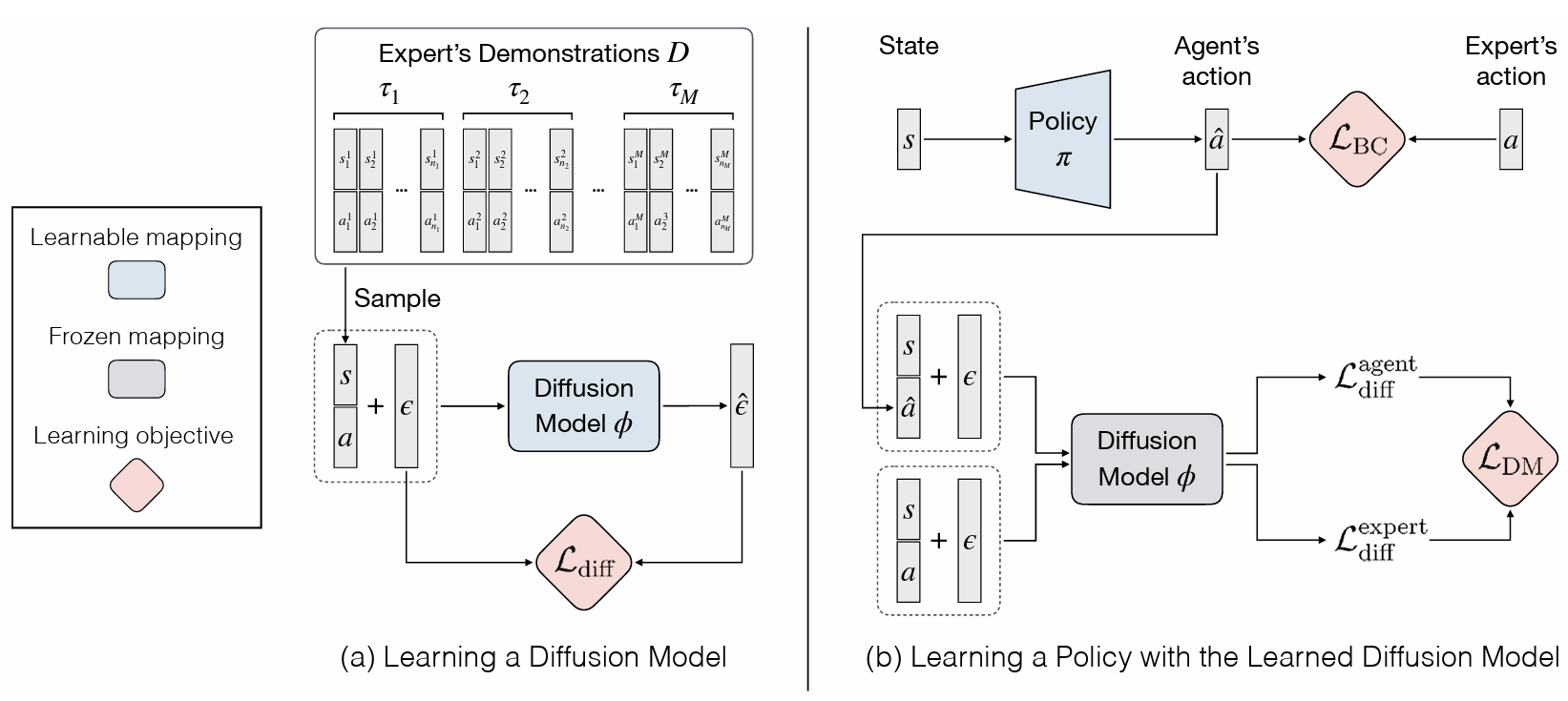Diffusion Model-Augmented Behavioral Cloning
Published:
Recommended citation: Hsiang-Chun Wang, Shang-Fu Chen, Ming-Hao Hsu, Chun-Mao Lai, Shao-Hua Sun, "Diffusion Model-Augmented Behavioral Cloning," in Proceedings of The Frontiers4LCD International Workshop on Diffusion Models at ICML 2023. https://arxiv.org/pdf/2302.13335.pdf
Abstract
Imitation learning addresses the challenge of learning by observing an expert's demonstrations without access to reward signals from environments. Most existing imitation learning methods that do not require interacting with environments either model the expert distribution as the conditional probability p(a/s) (e.g., behavioral cloning, BC) or the joint probability p(s, a) (e.g., implicit behavioral cloning). Despite its simplicity, modeling the conditional probability with BC usually struggles with generalization. While modeling the joint probability can lead to improved generalization performance, the inference procedure can be time-consuming and it often suffers from manifold overfitting. This work proposes an imitation learning framework that benefits from modeling both the conditional and joint probability of the expert distribution. Our proposed diffusion model-augmented behavioral cloning (DBC) employs a diffusion model trained to model expert behaviors and learns a policy to optimize both the BC loss (conditional) and our proposed diffusion model loss (joint). DBC outperforms baselines in various continuous control tasks in navigation, robot arm manipulation, dexterous manipulation, and locomotion. We design additional experiments to verify the limitations of modeling either the conditional probability or the joint probability of the expert distribution as well as compare different generative models.

